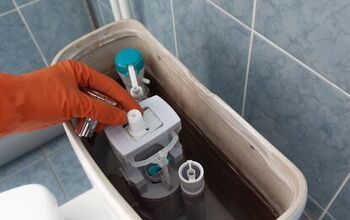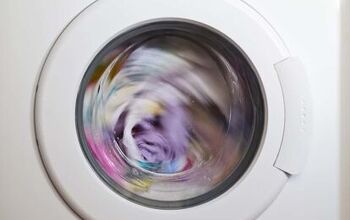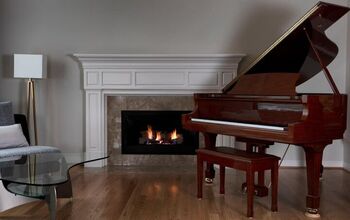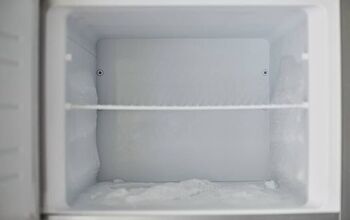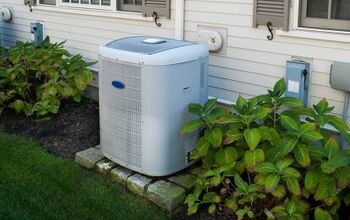What Are The Pros And Cons Of A Variable-Speed Air Handler?

Are you considering upgrading your air conditioner? A variable-speed air handler can make a huge difference in the comfort of your home. But before you choose a model with a variable-speed air handler, let’s go over all of its pros and cons.
Variable-speed air handlers respond to their environments by operating at various speeds based on the current temperature and desired temperature. Some of the pros of variable-speed air handlers are their efficient and precise temperature control and their energy savings. A couple of variable-speed air handlers are the high upfront cost and increased maintenance costs compared to single-speed air handlers.
Are you interested in learning more about variable-speed air handlers? Want to be well-informed before deciding whether or not to upgrade your air conditioner? Read on for in-depth lists of all the pros and cons that come with variable-speed air handlers.
Do You Need a Heating and Cooling Contractor?
Get free, zero-commitment quotes from pro contractors near you.

What Is A Variable-Speed Air Handler?
An air handler is the unit that holds your air conditioner‘s blower fan. The air handler’s job is to draw untreated air into the system. Once inside, it treats the air by removing heat and humidity. Then, the air handler pushes the treated air back into your living space.
There are two main types of air handlers: single-speed and variable-speed. You’ll usually see single-speed air handlers in cheaper air conditioners. Meanwhile, variable-speed air handlers are typically a sign of a higher-quality air conditioner.
A single-speed air handler only operates at 100%. Either it’s turned off, or it’s blowing full blast–there’s no in-between. This can cause “cold spots” in your house. It can also increase energy costs.
On the other hand, a variable-speed air handler reacts to the temperature in your home and adjusts accordingly. It can work at various speeds. Most variable-speed air handlers can function at anywhere between 25% and 100% of their full capacity.
Pros Of Variable-Speed Air Handlers
We’ll start off by going over the benefits of choosing a variable-speed air handler. There are quite a few, ranging from durability to improved air quality. You can even enjoy lower electric bills when using a variable-speed air handler! Read on for more detailed information about the advantages of this type of air handler.
Consistent Comfort
The motor in a variable-speed air handler adjusts incrementally according to real-time data. It responds directly to the actual cooling demand, quietly starting the cooling cycle.
As time goes on, variable-speed air handlers increase their output to evenly cool the entire home. Once your desired temperature is reached, the output is reduced to maintain the temperature within one degree.
With single-speed air handlers, you’ll often run into temperature swings. With variable-speed air handlers, that’s not an issue, thanks to their steady and consistent temperature control.
Quiet Functionality
Another benefit of variable-speed air handlers is that they run very quietly. In fact, many people who own this type of air handler never hear it running at all! This is because, unlike single-speed air handlers, variable-speed air handlers don’t run on full blast whenever they’re turned on.
If you have a single-speed air handler, you’ll hear it turn on and off constantly. The sound of the fan is also sure to become an annoyance. This reason alone is often enough to make people want to switch to a variable-speed air handler!
Durability
Single-speed air handlers constantly turn on and off, and when they’re on, they function at 100% capacity. This on-off cycling and running at full blast can put quite a bit of strain on the equipment. In fact, this can cause the system’s components to wear out and need to be replaced somewhat frequently.
But variable-speed air handlers are much more durable than single-speed options. They run at low capacity for longer periods of time. This isn’t as likely to strain and wear out the equipment.
Energy Savings
By not constantly running at full blast, variable-speed air handlers save a lot of energy. They only run at the capacity that’s necessary to maintain the desired temperature. This can actually save you money on your electric bill in the long run, offsetting the initially high installation cost!
Efficiency And Precision
In comparison to single-speed air handlers, variable-speed air handlers are much more efficient and precise. They’re efficient because they use less electricity when running at lower levels. In addition, they’re more precise and able to maintain your desired temperature within about a degree.
Humidity Control
Not only do variable-speed air handlers keep the air cool, but they can also control the humidity in your home! Humidity actually decreases as a result of the general cooling process.
Any water vapor in the air condenses on the air handler’s cold evaporator coil. It then drains away. The longer your variable-speed air handler’s cooling cycle, the more water vapor will be removed from your home.
Filtered Air
Yet another advantage of choosing a variable-speed air handler is that it provides air filtration. Variable-speed air handlers have extended run times at lower speeds. The extended run time allows a longer period for the circulating air to interact with air quality system components like filters. This means healthier, better-filtered air throughout your entire home.
Balanced Temperatures
Single-speed air handlers have a tendency to blow a lot of untreated air into your home. This results from them running at 100% capacity whenever they’re running. Unfortunately, this untreated air can cause large temperature fluctuations in your living space.
Variable-speed air handlers, on the other hand, don’t always run on full blast. They treat the air more evenly, so you won’t run into annoying temperature fluctuations.
Improved Air Quality
When using a single-speed air handler, the air in your home becomes stagnant whenever it’s turned off. But a variable-speed air handler keeps the air circulating. This can cut back on dust pretty significantly, as well as mold spores and other allergens. Overall, the nearly constant air circulation can vastly improve the overall air quality of your home.
Cons Of Variable-Speed Air Handlers
Now, let’s dig into the drawbacks of choosing a variable-speed air handler. There are actually very few negative points when discussing this type of air handler. For the most part, the benefits greatly outweigh the drawbacks. However, if you’re working with a tight budget, you’ll want to note the higher prices of variable-speed air handlers.
More Expensive Upfront
The main negative point when discussing variable-speed air handlers is their price. Compared to single-speed air handlers, they’re more costly to purchase and install. However, their higher upfront price is typically offset by their energy savings, which can lower your electric bill.
The average variable-speed air handler will cost you between $1000 and $3500. Add installation costs, and you’re looking at an additional $1500 on average.
To compare, a single-speed air handler typically costs between $500 and $1000. Installation is generally a bit cheaper as well. Still, these costs, while lower upfront, may actually be higher in the long run. This is because using a single-speed air handler generally results in higher electric bills due to the system’s inefficiency.
Higher Repair Costs
Another drawback to variable-speed air handlers is that they need maintenance relatively often. To add to that, the repair costs aren’t always cheap.
It’s necessary to hire a professional who knows exactly what they’re doing to fix any issues with your air handler. Generally, variable-speed air handlers are more expensive and time-consuming to fix than single-speed air handlers.
Related Questions
Are variable-speed air handlers worth it?
Experts usually recommend variable-speed air handlers over single-speed options. This is because they’re much more efficient, quiet, and precise. They do have a higher upfront cost, but they’ll provide energy savings in the long run.
What does a variable-speed air handler do?
A variable-speed air handler adjusts its output according to the temperature in your house. Unlike a single-speed air handler, it doesn’t function at full blast anytime it’s turned on. Instead, it can respond to the environment by functioning at the appropriate level.
What controls a variable-speed air handler?
Variable-speed air handlers contain ECM blower motors. These electronically commutated motors allow the variable-speed air handlers to operate efficiently.
Do You Need a Heating and Cooling Contractor?
Get free, zero-commitment quotes from pro contractors near you.

Main Takeaways
- Variable-speed air handlers come with tons of advantages. The only drawback is that they’re more of a financial investment than a single-speed air handler. They cost more upfront, and their maintenance costs tend to be higher as well.
- Using a variable-speed air handler means consistent comfort throughout your home. You can say goodbye to cold spots and temperature fluctuations as well. Plus, variable-speed air handlers can dramatically decrease indoor humidity.
- Variable-speed air handlers are much more efficient than single-speed models, saving you energy and lowering your electric bill.
- When you use a variable-speed model, it can adjust to real-time temperature data rather than running at 100% capacity.
- Variable-speed air handlers can improve the air quality of your home with their nearly constant air circulation. This means less dust, mold spores, and allergens in the air.

With a lifelong passion for writing plus strong enthusiasm for home improvement and DIY projects, joining the team at Upgraded Home was an easy choice. Jessica Allen likes to share helpful information with current and aspiring homeowners. Aside from writing, Jessica loves doing yoga, playing the piano, and dabbling in graphic design.
More by Jessica Allen



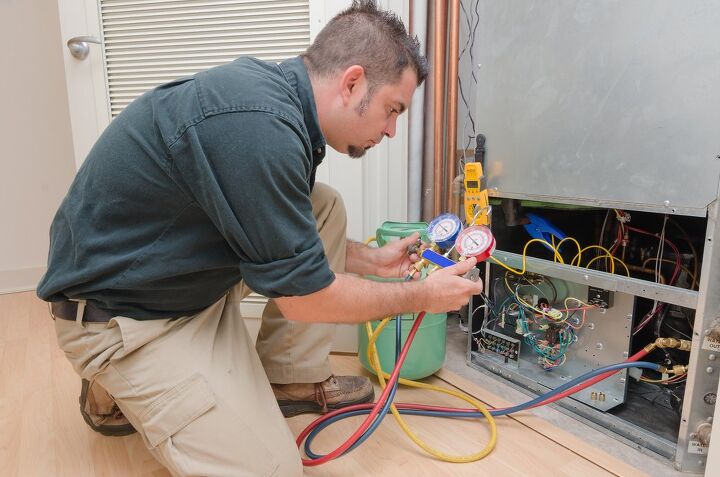






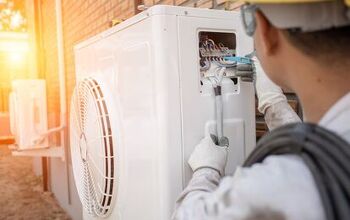

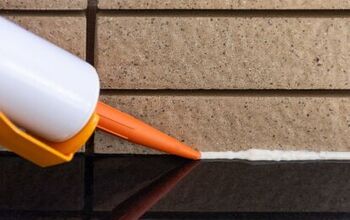
![10 Best Electric Lawn Mowers - [2022 Reviews & Top Rated Models]](https://cdn-fastly.upgradedhome.com/media/2023/07/31/9070486/10-best-electric-lawn-mowers-2022-reviews-top-rated-models.jpg?size=350x220)
